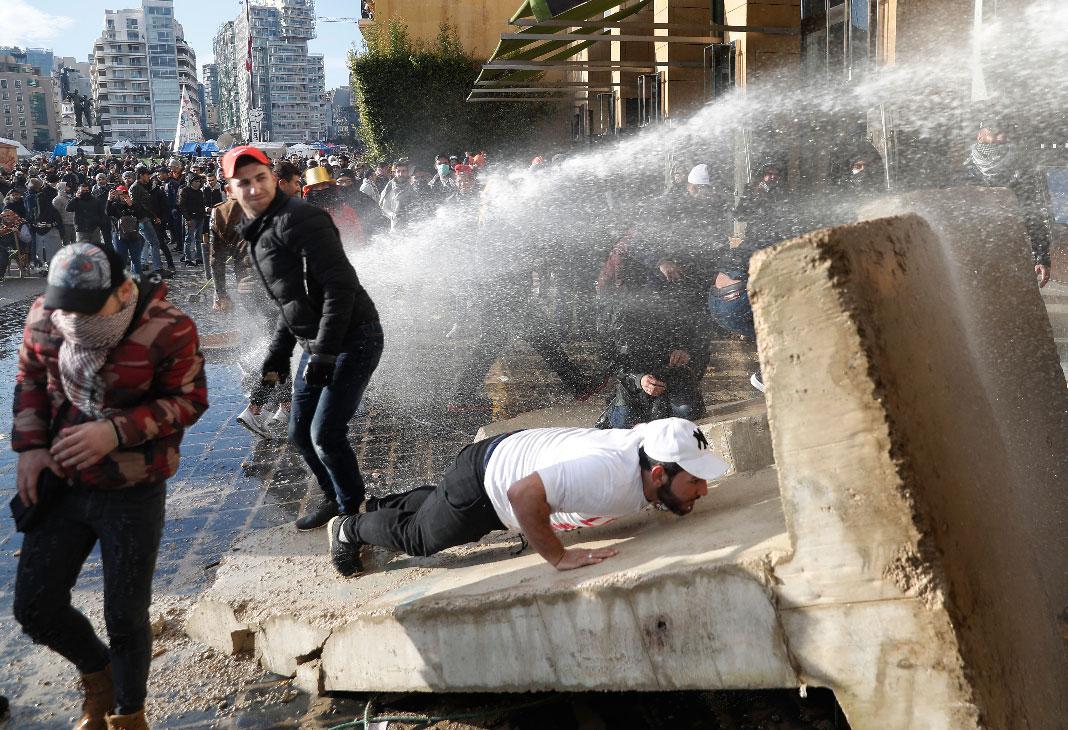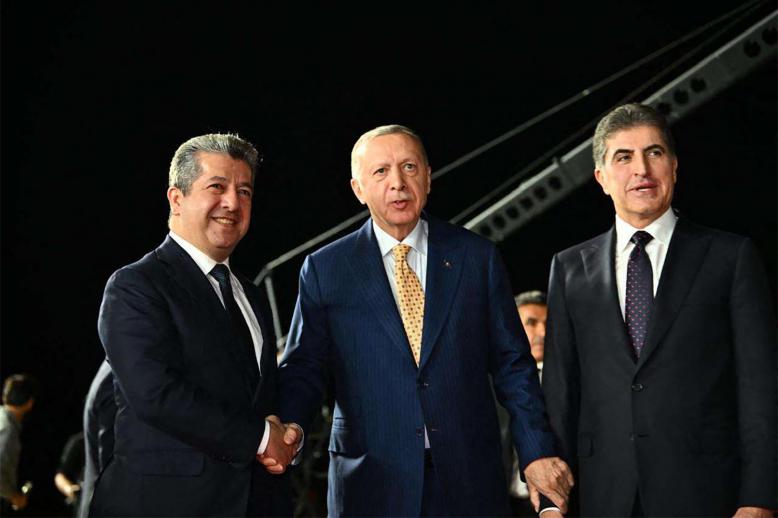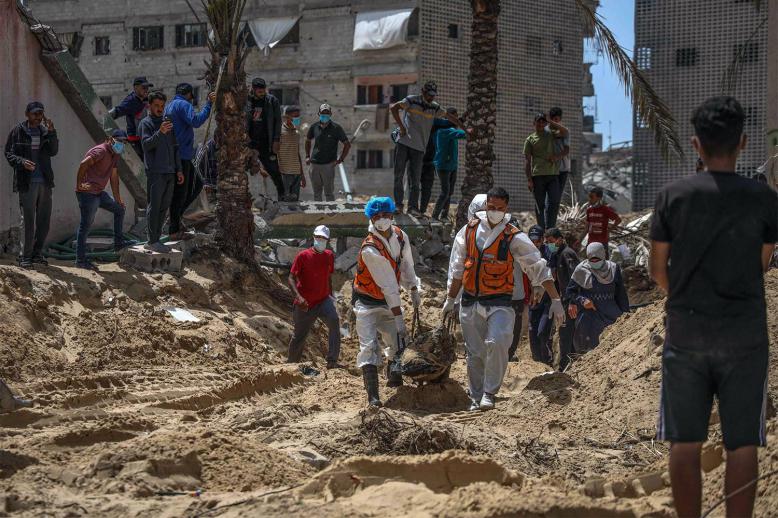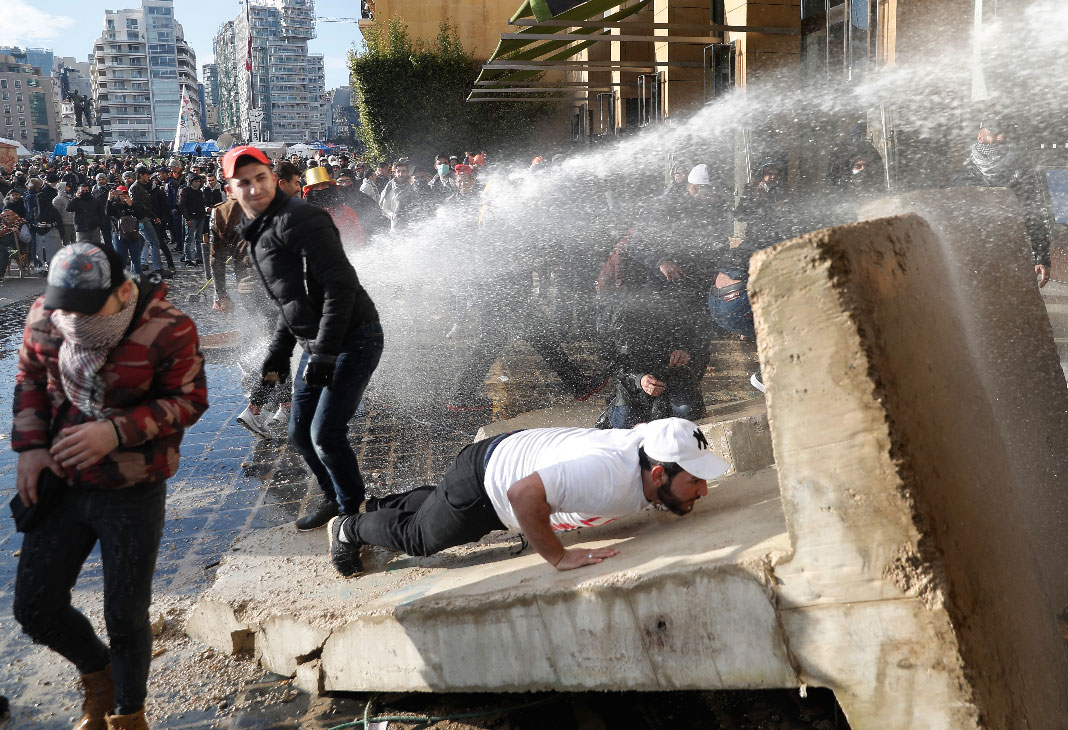Lebanese protesters chant 'no confidence' outside parliament
BEIRUT - Protesters in Beirut tried to stop a confidence vote in parliament Tuesday on a new government they say fails to address their demands and cannot rescue Lebanon's ailing economy.
Security forces used tear gas and water cannon to break up groups of demonstrators who hurled rocks over the blast walls erected around parliament and at police deployed at several locations around the city centre.
Protesters hurled eggs and threw paint at the cars of lawmakers and ministers while others tried to smash their tinted windows.
The Lebanese Red Cross said it treated 373 people for injuries, taking 45 of them to hospital, even as the army called for the protests to remain peaceful.
Before the session started, protesters mobbed the tinted-glass vehicles of lawmakers and lobbed water bottles at them in a bid to stop them reaching parliament for the vote. Some MPs skirted the clashes, arriving at parliament on the back of motorcycles.
Demonstrators draped in Lebanese flags and chanting "no confidence" had started gathering before dawn at various points around the capital in a bid to dodge police checkpoints.
Some lawmakers spent the night in parliament to thwart protesters who have successfully prevented several sessions since they launched their campaign in October last year.
"I'm here to say 'no confidence' in the government because the way it was formed shows that it cannot be trusted," said one protester who gave her name as Carole.
Hassan Diab, a little-known academic and former education minister, was tasked with forming a government in December after Saad Hariri was forced to resign from his post as prime minister by pressure from the street.
The unprecedented cross-sectarian protest movement has pushed for the wholesale removal of a hereditary political elite seen as corrupt and incompetent.
'People have no confidence'
While Diab vowed to carry the hopes of the protesters, portfolios in his government were shared out through the same partisan and sectarian gamesmanship that has been the trademark of Lebanon's political class for decades.
Christopher, 26, watched from a distance as water cannon projected cold jets at protesters trying to scale the perimeter blast wall.
"We are here to reject Diab's government and to say that the Lebanese people have no confidence in it -- even if lawmakers vote to support it," he said.
He said that, even if the new ministers appeared to be qualified, they still depended on "the parties that destroyed the country".
Demonstrators had travelled to Beirut from as far as Sidon, Tripoli and Tyre.
If approved by parliament, the new government will face one of the worst crises in the county's recent history.
Besides the biggest popular challenge to the power-sharing system that emerged from the 1975-1990 civil war, the country faces its worst economic crisis in decades.
Lebanon is on the brink of defaulting on its debt and the impact is being felt by all social classes, with tough restrictions on cash withdrawals and a de-facto devaluation of the national currency.
One placard seen at Tuesday's protest quipped: "Of course we are confident - that they will help the banks to the detriment of the people."
The World Bank has warned that if no solution is found swiftly to the crisis, the poverty rate may shoot up from a third to half of the population.
'Specifically to the Americans'
Parliament Speaker Nabih Berri has said Lebanon should seek IMF technical help and take a decision on whether to pay maturing foreign debt next month based on IMF advice, according to an-Nahar newspaper.
Lebanon could not, however, surrender itself to the IMF because the nation could not bear its conditions, he said.
Senior MP Alain Aoun told Reuters news agency on Tuesday the country needs IMF technical assistance and should draw on IMF advice in its decision on whether to pay a forthcoming Eurobond maturity.
He said this was also expected to be the position of his political party, the FPM which was founded by President Michel Aoun and named six ministers.
Berri said Lebanon must take advantage of the time remaining before its next debt maturity on March 9 to send a message abroad, "specifically to the Americans" that the country needs IMF technical help through a rescue plan.
Berri is one of the country's most influential figures and his Amal Movement named a number of ministers in Diab's cabinet which took office last month, including the finance minister.
"There is still room for Lebanon during the coming two weeks and before the end of the current month to benefit from this measure," Berri was quoted as saying.
Based on this, "Lebanon will be able to form its position on the maturing Eurobonds - whether to pay its commitments or not to pay them - based on what the IMF advises."
But Berri also said the Lebanese people would be unable to bear IMF conditions, saying Lebanon was not Greece or Argentina - countries that have experienced their own financial crises.





